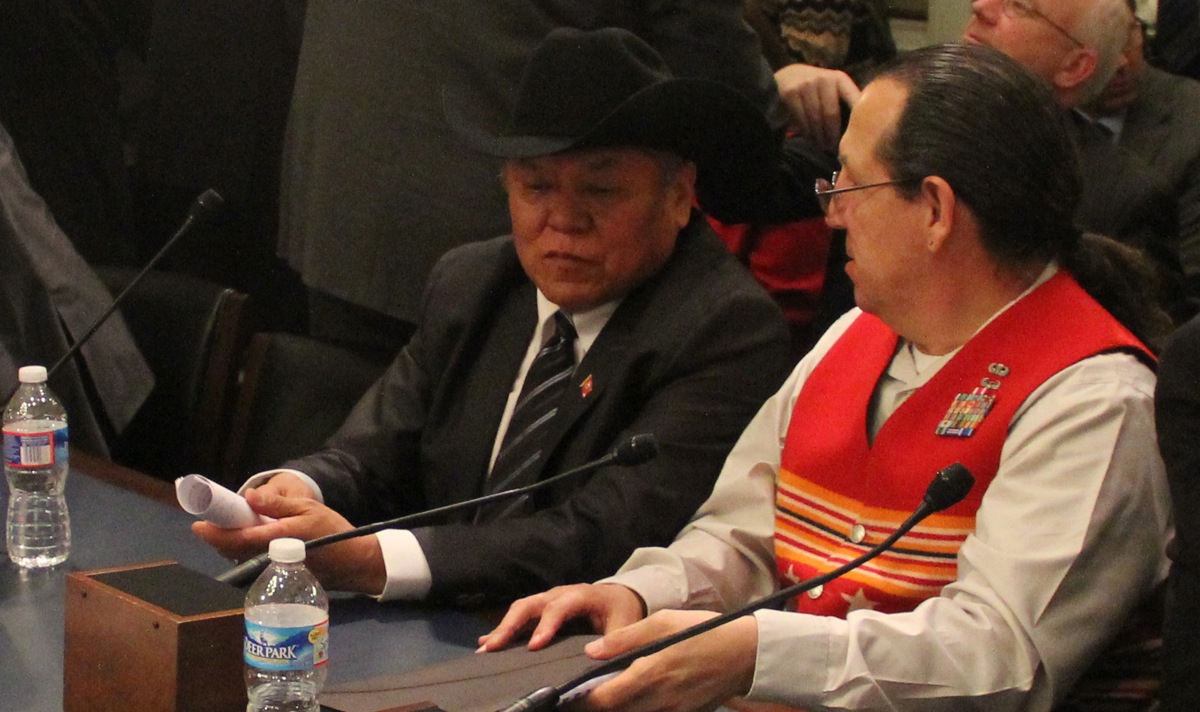WASHINGTON – The Department of the Interior turned over $580,000 to a Native American scholarship fund Wednesday, the first installment of a larger $3.4 billion settlement involving mismanaged tribal trust funds.
However five tribal leaders aired frustrations with Interior Thursday at a House subcommittee oversight hearing on the implementation of the Cobell settlement, which includes money for a land buy-back program, payments to beneficiaries and tribal scholarships.
“At Fort Belknap, we feel that we haven’t been a part of this process and we’ve made several attempts to do that,” said Mark Azure, president of the Fort Belknap Tribal Council in Montana. “We’ve been waiting and waiting and waiting and not hearing back from the folks on the other end. It’s like picking up the phone and there’s a dead dial tone.”
Offers have been made to 18,000 landowners on the Pine Ridge and Rosebud reservations in South Dakota and the Makah reservation in Washington over the past four months at a total of $14 million, according to Deputy Assistant Secretary of Indian Affairs Lawrence S. Roberts. Through the land buy-back program, the Interior gives tribal members 45 days to decide to sell parcels of land to a tribal trust. A percentage of each sale, up to $60 million, goes into the tribal scholarship fund.
The 1996 class-action lawsuit Cobell v. Salazar disputed the administration of assets for more than 300,000 individual Indian trust accounts controlled by the Interior Department. It was settled after 15 years of litigation. The settlement devoted $1.9 billion to the land buy-back program and $1.5 billion to compensate 500,000 trust beneficiaries who were affected by Interior’s mismanagement.
About 245,000 landowners on reservations are eligible to participate in the land buy-back program, but offers have yet to be extended to other tribes.
“I have a number of tribal members that are ready, willing and able to sell their land, they want to sell it, I’ve given them offers, I’ve got the appraisals and surveys,” said John Berrey, chairman of the Quapaw Tribe of Oklahoma. “They ask me every day when are they going to get to sell their land because they need the money. Not all of my tribal members have a lot of cash and they see this as an opportunity to better their families and maybe even buy some food or electricity.”
At the end of 2022, any unused settlement funds will be returned to the Treasury.
“I know tribes are concerned with the cooperative agreement process, but we’re going to look at ways to improve that process so that everyone’s time and attention can focus on making the program as successful as possible,” Roberts told the Natural Resources subcommittee on Indian and Alaska Native affairs.

